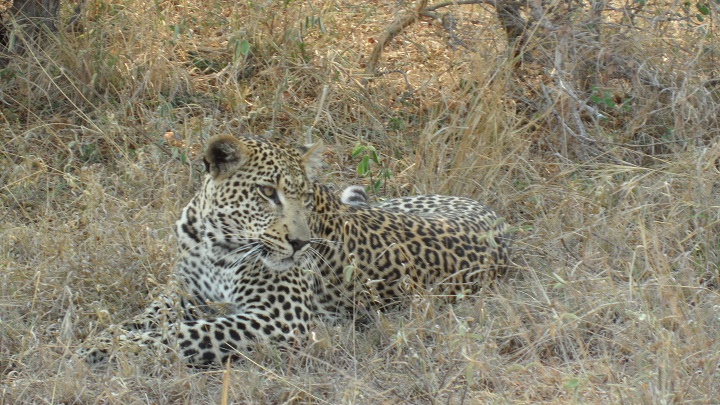COVID-19: Will enough lessons be learned to re-balance this unbalanced universe?

 This is a guest blog by ASCL Community Member Charmaine Williamson. Dr Williamson currently works part-time in higher education as an academic, researcher, supervisor/advisor, teacher and facilitator of researcher development programmes. For the rest of her time, she is Adjunct Faculty at the University of South Africa. She has a personal interest in animal rights and post human rights lenses for sustainable development.
This is a guest blog by ASCL Community Member Charmaine Williamson. Dr Williamson currently works part-time in higher education as an academic, researcher, supervisor/advisor, teacher and facilitator of researcher development programmes. For the rest of her time, she is Adjunct Faculty at the University of South Africa. She has a personal interest in animal rights and post human rights lenses for sustainable development.
While the globe is seized with the COVID-19 pandemic and human rights under national lockdowns, particularly in Africa, are being challenged, are we thinking enough about what is on the earth’s ballot? Certainly, the World Economic Forum has headlined some of the effects of the virus on animals, from the infection of the tigers in the Bronx Zoo to the renegade goats in Wales. Based on the claimed aetiology of COVID-19, it is classified as a zoonotic virus which jumps from animals to humans. The wet market in Wuhan is presented as the origin point.
The pandemic has thus inspired many to ask the question: Isn’t it time to re-balance this unbalanced universe?
Good news stories
For the earth’s vote, there are several telling inclusions on the ballot paper. Certainly, awareness and activism have been raised around the banning of wet markets, the illegal trafficking and poaching of wild animals as well as the consumption of live animals. Nature reclaiming spaces has also received attention: Venice’s waterways are returning to more pristine states, birds and fish appear to be flocking and shoaling more dramatically, captive animals are breeding for the first time in years, and the lessening of the ozone hole was also attributed to COVID-19’s impact on human and industrial activities. While these are some good news stories, wildlife poaching has been on the increase as illicit activities benefit from the reduced human resources as a consequence of the pandemic. The economic crisis has also driven communities to seek bush meat as food, during this time of food insecurity.
Implications for Africa
The survival of human and natural ecologies during and beyond COVID-19 has particular implications for Africa. Africa is highly reliant on the competitive niche it has: Africa offers excellent actual and potential sites for harnessing global population demographics for markets and economies, food production, research and the green and blue economies, and it has biodiversity that is acknowledged as greater in the so-called ‘less developed’ countries. It has been estimated that tourism contributed 34,2 billion USD to Africa in 2013, with that number rising until the sudden and unexpected halt from February 2020 (World Tourism Association, 2014). The vulnerabilities of heterogeneous and biodiverse Africa have been brought into even sharper focus within a world that faces such a complex crisis.
Towards a post-human rights perspective
Yet, are these still not side-lines in relation to human rights? Within Africa’s compromised human rights track record, exacerbated now by the strictures on human freedoms being imposed on societies, is there still the ‘luxury’ to consider human rights? Or as the globe claims a new world order, is there opportunity to move to a post-human rights perspective? While such a perspective might suggest leap frogging human rights, according to Ferrando (1998:5), this is not necessarily the case.
The posthuman destabilizes the limits and symbolic borders posed by the notion of the human. Dualisms such as human/animal, human/machine, and, more in general, human/nonhuman are re-investigated through a perception which does not work on oppositional schemata.
Posthumanism thus has human as an “open notion”, with humans intrinsically connected to the ecosphere. Will there be enough lessons from COVID-19 for a meaningful shift to happen to a posthumanism agenda for the ecology of our communal existence, notwithstanding considerations high on the African agenda for human rights? As Ferrando (2012: 10) states: “posthumanism [is about]… environmentalism, deep ecology [as well as] animal rights”. Posthumanism acknowledges that such domains should be placed on a far more equitable footing alongside human rights.
Role reversal
During the time of the pandemic, animals are still being slaughtered for their meat, and in fact, human consumption around panic buying would have caused a peak in demand. Animal shelters and zoos have had fewer staff with some animals reportedly missing the human interactions. On the other end of the spectrum, families have been home with their domestic or farm pets for protracted periods of lockdown time, and judging from popular footage, pets have been keeping humans on the ‘sane and narrow’ path through their unconditional companionship. People have fostered animals with some families realising the therapeutic nature of their fostered pet, and stating that they will keep them after lockdowns. Jokes abound about the role reversal between humans and animals: humans muzzled with masks and in lockdown conditions, while animals roam more freely. Yet, the economic effects of unemployment, less disposable income, and human as well as socio-economic recovery from the Pandemic pervade, animals and the earth might again be short-changed as human rights again take centre-stage. Many might argue that for Africa, this is perhaps the right of this continent, given the ravages of human rights abuses that Africa has witnessed.
The collective rights of our earth
Therefore, is it too early to consider a broader post human rights movement considering the inequalities and unevenness of human rights, not only in Africa, but throughout the world? Is there any appeal to the idea that, now that we know what it means for our individual rights to be subsumed for more collective rights, that we take into account the collective rights of our earth? Having considered what it means to be shut up, will we consider more humane conditions for animals in captivity or in trade? Will fiscal budgets take into account that more creatures than humans suffer from unemployment and loss of income? The third sector of society that focuses heavily on environmental and animals’ well-being and rights are sure to struggle to raise funds to fulfil their missions. As we acknowledge the weaknesses of the human condition, mourn our fellow humans who have sickened or died from this pandemic, who were voiceless at a time when they most needed a voice, will humans be the voices in their names for those animals and elements of nature that have no voice? Humanity has taken its toll and is reeling from the unprecedented powerlessness that nature has wrought on us. We may ask deep philosophical questions as to why this has happened. And we need to do so. Yet, it is in the actions that we take to re-balance this unbalanced universe where we might most conceivably be the best of humanity, for the sake of humanity, and our posthumanity.
Literature
Ferrando, Francesca. Philosophical posthumanism. Bloomsbury Publishing, 2019.
Ferrando, Francesca. "Towards a posthumanist methodology. A statement." Frame Journal For Literary Studies 25, no. 1 (2012): 9-18.
World Tourism Organization (2014), Towards Measuring the Economic Value of Wildlife Watching Tourism in Africa – Briefing Paper, UNWTO, Madrid.
This post has been written for the ASCL Africanist Blog. Would you like to stay updated on new blog posts? Subscribe here! Would you like to comment? Please do! The ASCL reserves the right to edit, shorten or reject submitted comments.
Read the other blog posts dealing with COVID-19.
Photo credit: Leopard in Timbavati Game Reserve in South Africa. Photo by Charmaine Williamson.


Add new comment